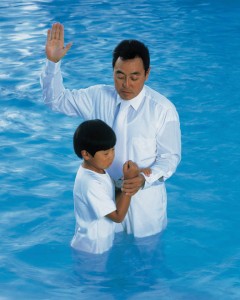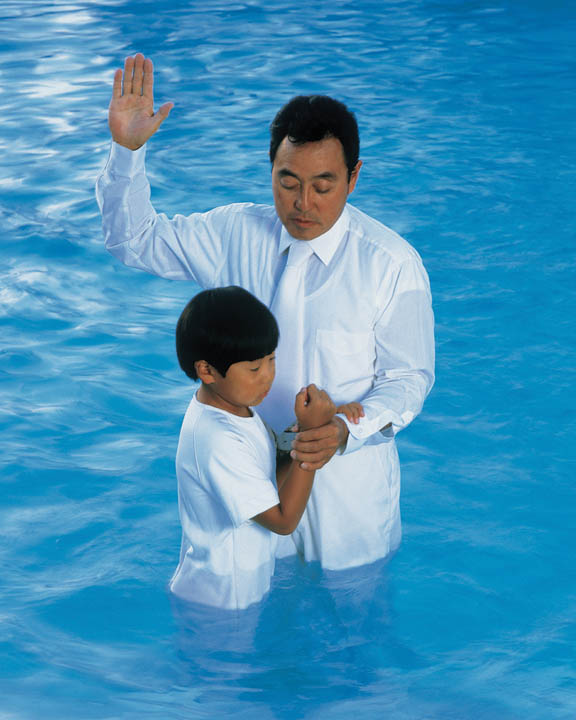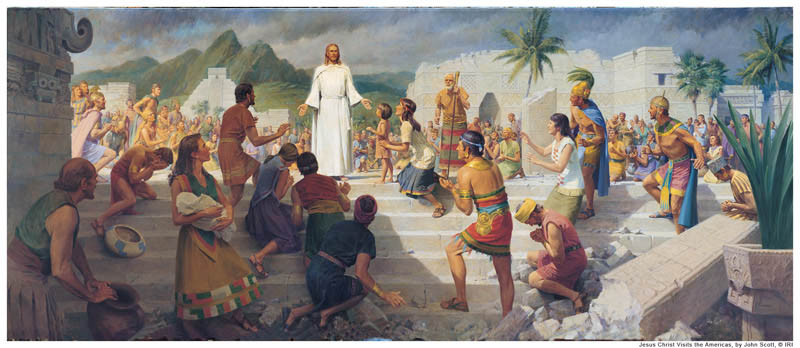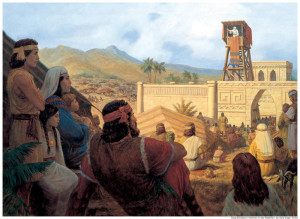Mormons don’t baptize children until they are eight years old. This is the age of accountability, when children are considered old enough to know right from wrong and to be able to make choices for themselves. While they are, of course, still subject to parental direction, there are many times when they can make their own choices as to how to behave, and they are accountable for those choices. Their parents are accountable for the decisions they make for their children.
 The Book of Mormon teaches that little children can’t sin. Satan has no power to tempt them until they are eight years old. They can make mistakes, but they can’t sin. Mormons teach that we are each punished only for our own sins, and not for Adam’s transgressions. Although we all experience the consequences of the fall, meaning death, God doesn’t punish us for his choice. An infant cannot choose baptism, and to punish an infant for dying without baptism would be cruel and unfair, and God is neither. In addition, an infant can’t repent, so he cannot be held accountable for the things he does. God is always kind and fair, and loves children.
The Book of Mormon teaches that little children can’t sin. Satan has no power to tempt them until they are eight years old. They can make mistakes, but they can’t sin. Mormons teach that we are each punished only for our own sins, and not for Adam’s transgressions. Although we all experience the consequences of the fall, meaning death, God doesn’t punish us for his choice. An infant cannot choose baptism, and to punish an infant for dying without baptism would be cruel and unfair, and God is neither. In addition, an infant can’t repent, so he cannot be held accountable for the things he does. God is always kind and fair, and loves children.
At the age of eight, a child is accountable for what he knows so far and what he has control over. While under direction and control of the parents, the parents are responsible for teaching the child what is right and how to live. They are also responsible if they allow or force a child to sin.
Prior to baptism, children are educated in the gospel. They learn the important truths and what behaviors are expected of children. They learn how to repent, and although they aren’t accountable for their sins, they practice the steps of repentance, so they are comfortable with it when the time comes. They learn how to make choices when faced with a moral decision and how to resist temptation.
These lessons are taught first in the home. Parents are considered to be a child’s primary teacher and responsible for their religious education. There are many ways this is accomplished. One way is through daily family prayer and scripture study. Even small children participate in scripture study at home with their families. Another way is through Family Home Evening. Every Monday evening, the family shuts out the world and spends a few hours together learning about the gospel of Jesus Christ through simple lessons and activities. This allows children to learn about the Savior in a loving environment while building their family relationships.
Children are also taught the gospel at church. Church classes are designed to help the parents, not to replace them. All children, even babies, attend the basic worship service, known as Sacrament Meeting, with their families. Then families split up and attend classes based on age and sometimes on gender. Children attend the nursery at age eighteen months. There, they play, but they also have brief, simple lessons about gospel truths, taught through stories, songs, and activities.
At age three, they begin the regular Primary classes. Primary is for children ages 3-12. Here, they learn the gospel in classes organized by age, and the lessons become increasingly more complex. These lessons prepare children for the time when they are accountable for their choices.
The Book of Mormon teaches that anyone who feels God will punish a small child for not being baptized does not understand the atonement of Christ, which atoned for any responsibility that child might have for actions of his ancestors. The atonement guarantees us the privilege of being punished only for what we knowingly and willingly do wrong. The Savior’s love for us, and God’s love for us, ensures that all dealings we have with them are fair and kind.
About Terrie Lynn Bittner
The late Terrie Lynn Bittner—beloved wife, mother, grandmother, and friend—was the author of two homeschooling books and numerous articles, including several that appeared in Latter-day Saint magazines. She became a member of the Church at the age of 17 and began sharing her faith online in 1992.






